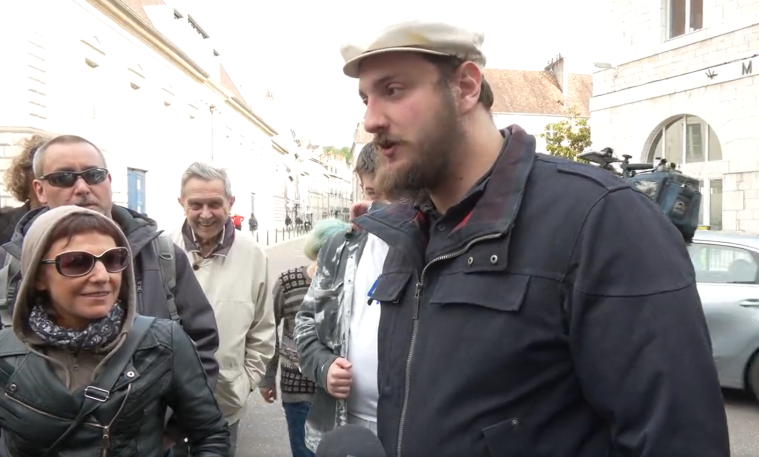Berlin, May 3, 2023—French authorities should drop all criminal charges against journalist Toufik-de-Planoise and ensure that members of the press do not face legal retaliation for their work, the Committee to Protect Journalists said Wednesday.
On April 26, police summoned de-Planoise, a reporter with the privately owned local outlets Média 25 and Radio Bip, to a police station in the eastern city of Besançon for questioning, and then detained him for nine hours and charged him with obstructing freedom of assembly and the movement of trains, according to news reports, statements by his outlets and local journalist union SNJ-CGT, and Emma Audrey, a reporter at Média 25 and Radio Bip who spoke to CPJ by phone.
The charges relate to de-Planoise’s coverage of a January 30 protest that disrupted an anti-abortion conference and an April 20 demonstration protesting pension reform, during which protesters occupied a train station for at least an hour.
His trial is set for June 30 and, if convicted, de-Planoise faces up to one year in prison for obstructing freedom of assembly and up to six months imprisonment for obstructing trains.
“French authorities should drop the criminal charges against journalist Toufik-de-Planoise and ensure that members of the press do not face potential prison time for their reporting,” said Attila Mong, CPJ’s Europe representative. “Reporting on demonstrations is clearly in the public interest, and authorities should stop pursuing charges against journalists for simply doing their jobs.”
Police charged de-Planoise alongside protesters at each event, despite him being clearly identified as a journalist, Audrey told CPJ, adding that police checked de-Planoise’s press credentials at both protests and on April 26, before questioning him called Radio Bip newsroom to confirm his role. At each protest, he was wearing a helmet labeled “press” and carried his local union press card and credentials from both outlets.
According to Audrey and the SNJ-CGT statement, they consider these charges “abusive” and retaliation for his work as a reporter. The statement noted that, according to official police guidelines issued in 2021, journalists covering demonstrations “may, unlike other persons present, circulate freely within the security arrangements put in place.”
In late March, police officers shoved and obstructed de-Planoise while he covered a protest in Besançon.
After the publication of this article, Besançon Prosecutor Etienne Manteaux responded to CPJ’s email seeking comment saying that, if de-Planoise had covered the April 20 protest from the train platform, “that would have posed no difficulty. But the fact that he positioned himself on the railway tracks constitutes in my opinion a criminal offence.” Manteux did not comment on the other charge of obstructing freedom of assembly.
[Editors’ note This article has been updated in its final paragraph to include Manteaux’s response to CPJ.]
